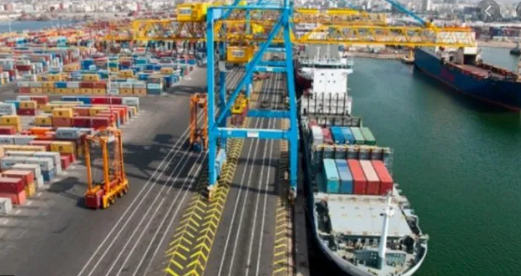
The very evident drop in Iran’s oil and petrochemical revenue during the last few months, and the negative effect of the coronavirus pandemic on its economy has set the stage for a devastating economic reality for the country.
At the onset of the current Persian year (March 20, 2020), the national currency rate was around 16,000 tomans to the dollar, but by June there had been a rapid rise to more than 25,000 tomans. The rate dropped back a little during recent weeks to 21,000, but recorded another peak on Monday, July 27 when it reached 23,000 tomans per dollar.
Iran’s economy suffered a great shock during the first half of 2020, recording a $279 million negative trade balance. The World Trade Organization has assessed in 2020 there will be a 13% to 32% drop in world trade, with Iran at the top end of that range, at least 32%, due to 70% of Iran’s exports consisting of oil and petrochemical products ( State-run Hamshahri Newspaper May 12, 2020). Although under the regime’s factional influences, Iran’s customs statistics are vague and manipulated, they still show that the average value of the country’s exports are only a quarter of its imports (State-run ISNA News agency May 24, 2017). The lower the exports, the lower the inflow of foreign currency, and more the demand for it. In a situation where economic prosperity is not possible, the central bank of the country must introduce foreign currency into the economy, but Iran’s Central Bank does not have this capacity.
The drop in foreign currency revenue is not only due to a decrease in the oil trade, but also to another major element, the plundering by corrupt bands affiliated to the Islamic Revolutionary Guards Corps (IRGC), the government and Khamenei himself. They use the hard currency which is 4,200 tomans to the dollar, one-fifth of the price on the free market, to import goods, so benefiting themselves 5 times by selling the goods at the price of the free market currency rate. Even worse, when it comes to exports, the dollars, Euros, and other currencies do not return to the country and its economy. At the inauguration ceremony for some industrial projects, Hassan Rouhani, pointing to the fact, admitted: “20 billion Euros of goods have been exported in early 2020, but its revenue has not returned back to the country” (State run ISNA News agency July 09, 2020).
ISNA the state-run news agency, while quoting from ”Judiciary” reported that Alqasi Mehr, Tehran’s prosecutor, “has opened corruption files for 5 pharmaceutical companies which have attained a large amount of currency from the central bank to import raw material and medication but have used it for other purposes.” This mafia band, related to Iran’s pharmaceutical giant, is affiliated with Khamenei. As the prosecutor has put it “the five have obtained 954,069,151 dollars from the central bank.” Khamenei, caring nothing for the people of Iran, has found a blessing in the coronavirus pandemic too, for both his survival and more plundering of the Iranian people’s wealth. He said on Sunday, “The plan to fight coronavirus is a very efficient plan. It is what turns a calamity to a blessing and a threat to an opportunity; God willing.”
Sharq state-run daily reported on Monday, 20 July 2020, that Mahmood Vaezi, Rouhani’s chief of staff has reported: “One billion dollars of hard currency which has been allocated for the import of medicine and essential goods is lost?!”
The truth is that Iran’s economy is in its last throes. The disease — the IRGC and The Executive Headquarters of Imam, which belongs to Khamenei, is clinging on to Iran’s import and export trade like an octopus, with exclusive control over it, causing immense corruption.
No wonder that for the first time in five months, Khamenei left his quarantine and met with the Iraqi prime minister, Al-Kazemi, in Tehran and begged him to release the 5 billion dollars of Iran’s wealth from Iraq’s TBI bank. He received a ‘NO’ as the answer because Al-Kazemi’s priority is Baghdad’s relationship with the US. The Iranian regime will try to use Iranian enterprises active in Iraq to bypass the sanctions and return the money to Iran.
Currently Iran’s economy is in a state of collapse suffering consecutive shocks; Internal production, agriculture, internal industry, foreign trading, etc., etc. are in a state of chaos.
The Iranian regime has always relied on its influence at “four capitals” (Beirut, Baghdad, Damascus, and San’a) but now, with its grip on them loosened as well as facing a broken economy inside Iran itself, the prediction for the future is nothing short of political and social dissolution.
- Russia Begins Mass Vaccinations For Bubonic Plague On Mongolian Border
- Yes, Russia Could Work With US Against China

